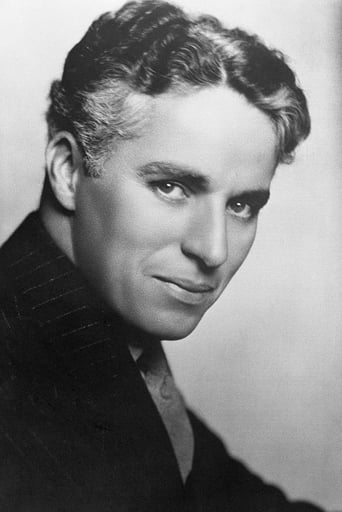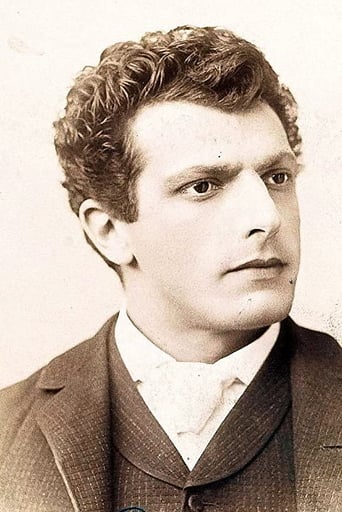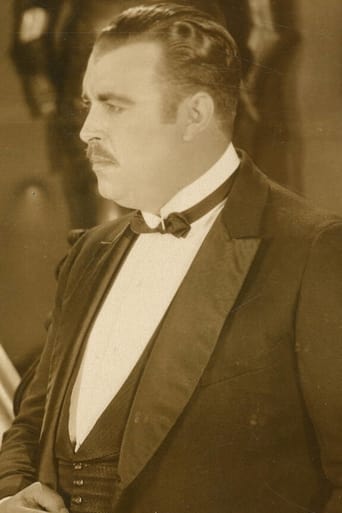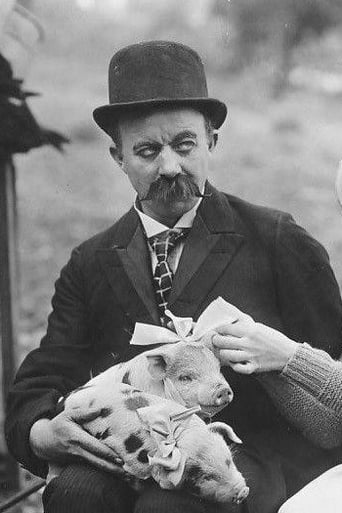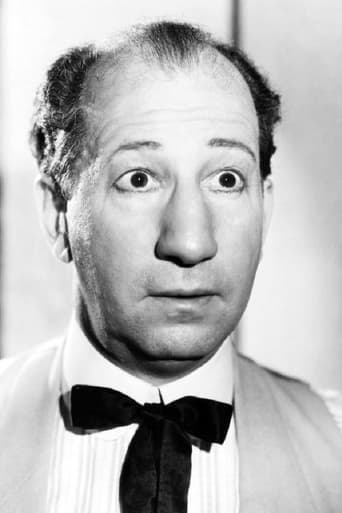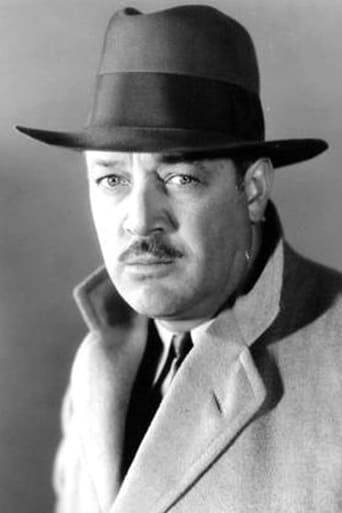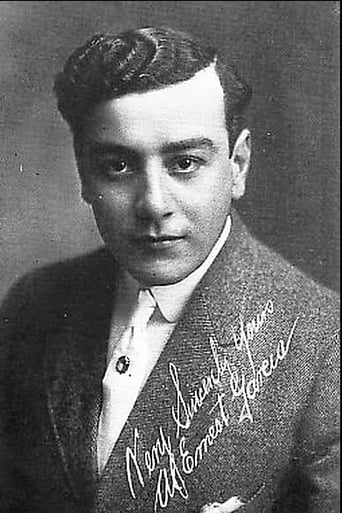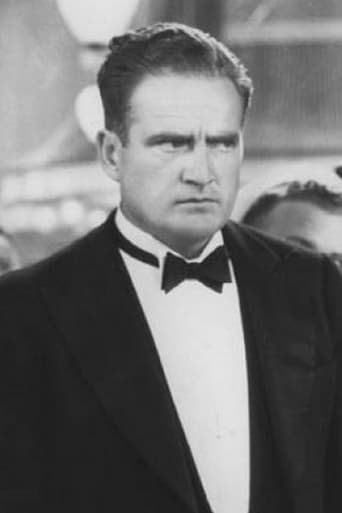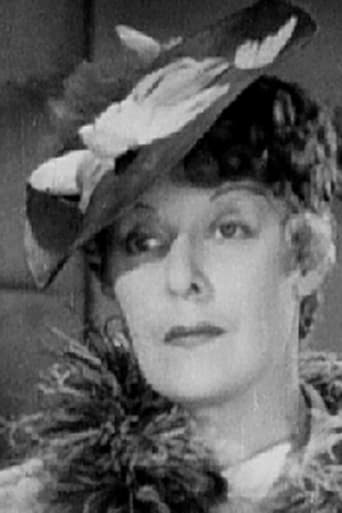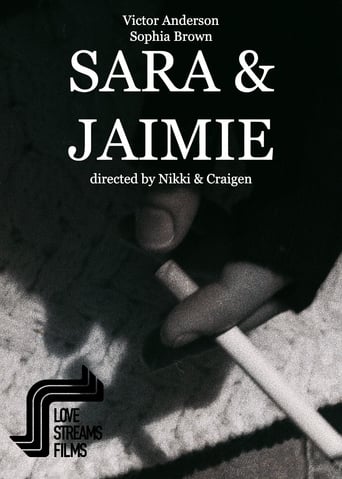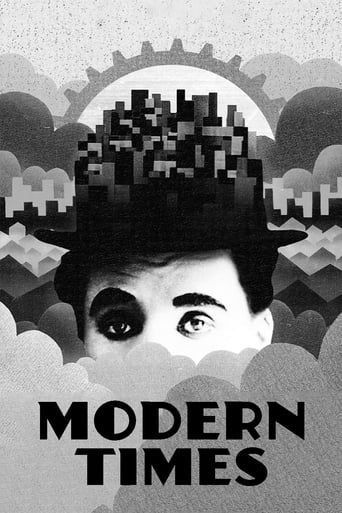
Modern Times
February. 25,1936 GA bumbling tramp desires to build a home with a young woman, yet is thwarted time and time again by his lack of experience and habit of being in the wrong place at the wrong time..
Similar titles
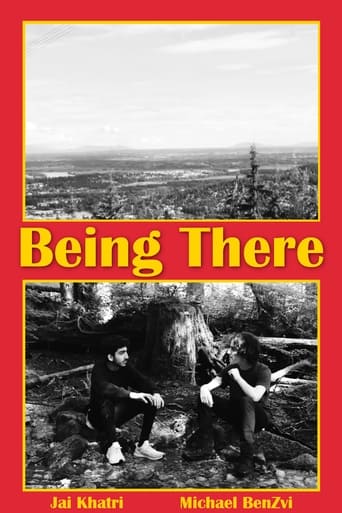

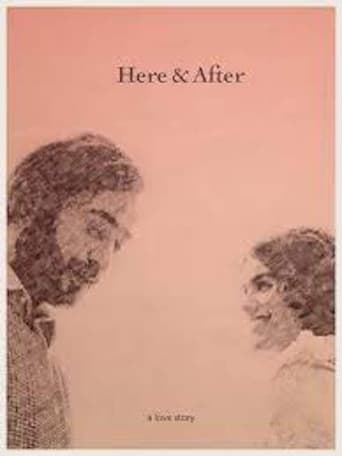
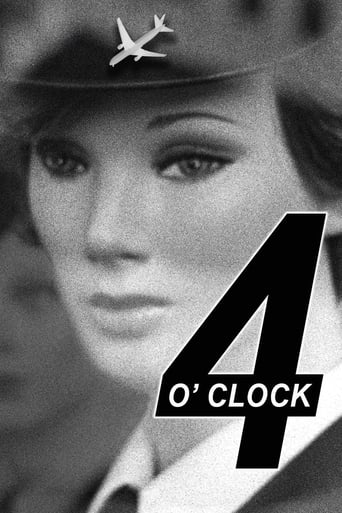
You May Also Like

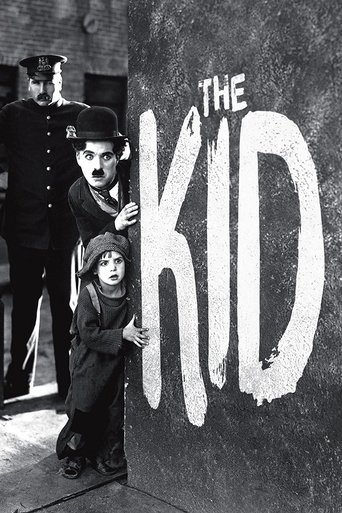


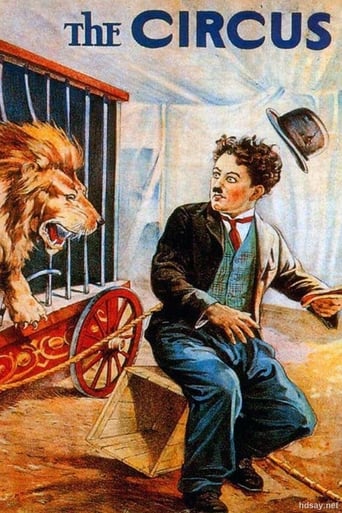
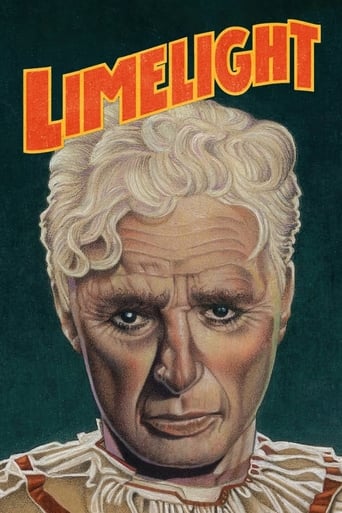
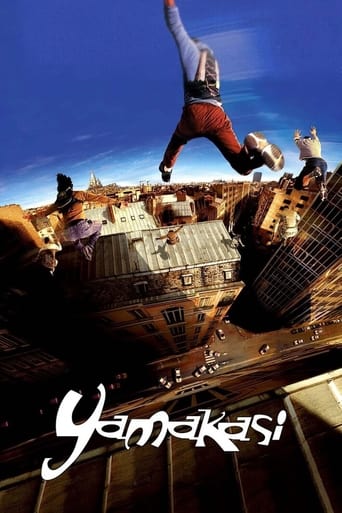
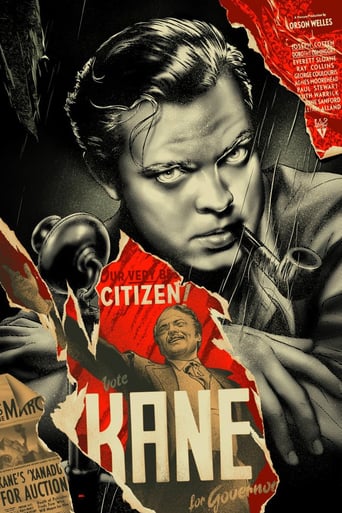
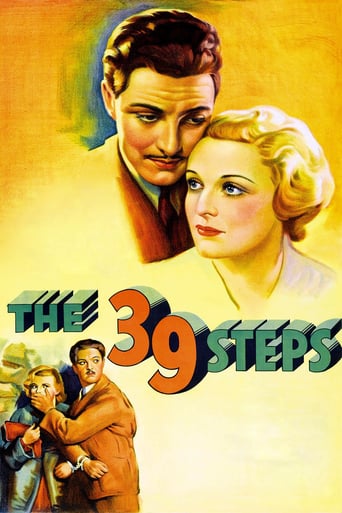
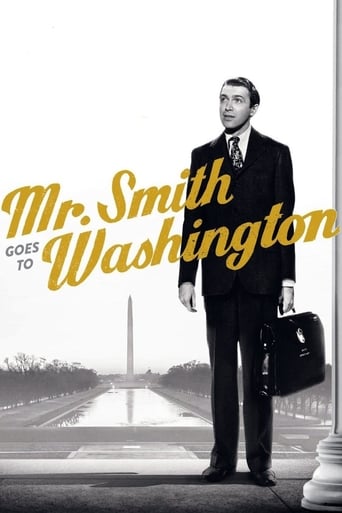
Reviews
That was an excellent one.
For all the hype it got I was expecting a lot more!
This story has more twists and turns than a second-rate soap opera.
It's a good bad... and worth a popcorn matinée. While it's easy to lament what could have been...
The Tramp struggles to live in modern industrial society with the help of a young homeless woman. Mordern Times was definitely a very pleasant suprise full of humor but also kindness, Charlie Chaplin gives a terrific perfomance and that fight scene in the prison was so well executed and just so funny. Definitely a movie that deserves the rating it has and even tho Chaplin never speaks (although he sings a bit) he showcases his emotions with his face and that to me is called real artistic and oscar worthy acting and the man just had it as it seems. (A+)
'Modern Times (1936)' is considered to be the last American 'Silent Film', made long after the era had essentially come to a close. It's fitting, then, that some use of sound seeps into the piece and usually signifies the modernisation of society, machines replacing man and bringing audio with them. It also gives us the first taste of The Tramp's voice, as he is forced into an uncomfortable situation simply to find work - though the song he sings is gibberish to keep the scene universally understandable. This picture is perhaps Chaplin's finest silent work because it not only has a message, taking a stance against the industrialisation of the workforce and its replacement by unthinking machines, but is also riotously entertaining throughout. It puts a smile on your face in the first scene and keeps it there until the last. Each slapstick set-piece comes incredibly close to brilliance, with a few easily crossing that threshold, and the feature is funny in the way only a film of this kind could be. It really is effortlessly entertaining and endlessly enjoyable, remaining a purely visual threat from beginning to end with some fantastic themes and inventive scenes. There isn't really a moment that doesn't work and the Tramp remains as endearing as ever. It's made even better because of its underlying point, one that is all the more relevant today and was actually somewhat clairvoyant, and is certainly one of the most purely cinematic pictures I've ever seen. A proper Chaplin classic. 7/10
The Tramp must face up against the industrial revolution in this Charlie Chaplin film that marks his first foray into political commentary. The film was made to comment on the Great Depression and the effect automation and industry had in making it happen. At least according to Chaplin himself.Beyond that the film is your typical Charlie Chaplin film. The Tramp is introduced, the Tramp faces difficulties, physical comedy segments, the Tramp meets a girl, the Tramp does something funny to impress the girl, difficulties, physical comedy, and it all ends in a funny, bittersweet yet uplifting way. If you've seen Chaplin's other films, you've seen this for the most part.That being said, the sets in this one are some of the best I've seen. Modern Times has some of the most iconic comedy scenes in cinema history for a reason. I also really like the heroine played by Paulette Goddard. A girl of spunk, character and resources, who takes care of the Tramp more than he takes care of her, which is a refreshing turnabout. Especially for a film this old.Modern Times is a fine film. Personally I do find it a bit too segmented to be a great film, and Chaplin's style of humour has never been my forte. But it's a fine film, no doubt about it.
I was actually about to completely write off this movie until I actually realised the genius that went into creating it. In a way Hollywood simply does not make movies like this any more, particularly where the creative genius of Charlie Chaplin is the writer, director, and star of the show. Sure, Chaplin is one of those actors that I have heard a lot about – he is one of the greats of the early years of Hollywood – but I never paid much attention to him believing that the only decent movies of the silent era came out of Germany (and to an extent Russia). However, a friend at work was talking about a film called The Dictator and a part of me decided that maybe it was time to actually sit down and see what Charlie Chaplin was all about. Well, I have to admit that I am glad that I did.The film itself doesn't have a plot, but rather is about the struggles of two people in the great depression and an age where technology is taking all of the jobs. However, Chaplin is a genius in how we satirises everything about modern life from automation, crazy inventions, the union movement, and even communism. On one level it simply seems to be nothing more than slapstick, though it is one of those movies that you have to take a step back and think about what is being said to really understand the true satire that Modern Times actually is – in a way it works on two levels, the slapstick for the lowest common denominator, and the satire of those who are actually willing to sit down and think about what is going on. Even then the slapstick itself is really clever – I am not going to forget the scene where he carries a tray into a restaurant to have everybody suddenly pile onto the dancefloor and then getting carried away with the crowd.What really impressed me was how versatile they were when it came to making silent films. Sure, by this time they had started to produce talkies, and you could tell that this film did have a sound track (and Chaplin even sings), however it is clear that you don't actually need sound, or even a lot of words, to be able to see the action that is happening, and to work out what is being said despite the fact that no words are coming out of the actor's mouth – only their lips are moving. In a way this type of film is actually far, far superior than many of the films that we see floating around today with all the great computerised special effects and clever stunt doubles. In fact all of the stunts in this movie would have been performed by Chaplin without any special effects whatsoever.Yet it is also interesting to see how much hasn't changed. In a way we look back in the days of our parents and grandparents and see a world where everybody had a job, and that you could drop out of school at year ten and walk straight into a career. It was also a world where people had money, and things were much more peaceful. However, Modern Times gives us a different glimpse into the great depression, where automation was taking all the jobs, and that unless you were skilled you were unable to find employment. Also notice how people are being sent to gaol simply for stealing a loaf of bread, but not only that but people will actually pursue somebody who is only trying to feed themselves. Yet we also have that dream of home ownership – and in a way it is painted that owning a home is a sign of wealth, a sign of achieving the American Dream – and the ending is interesting in that it gives the idea that no matter where you land up the dream is still alive.Having a job is a key to living the dream – as we see with the heroine. When Chaplin gets out of gaol the third time (it seems that he is always landing up in gaol – as if ending up there is just a part of life, however it is also just a minor inconvenience on the road to living the dream), she has found herself a job, and is now dressed well, and has possessions. In a way that reminded me of when I got my first job – suddenly I had money that I could spend, and I could go down to the shop and impulse buy an Iron Maiden T-Shirt. However, there is a catch, something that is not indicated in the movie, and that is the trap that the modern society creates – to survive you must work, but once you start working you suddenly have access to credit, and what credit, or more so debt, does is that entraps you in that daily cycle of forever going to work.Yet we also have the capitalist idea of forever producing more and becoming more efficient. The factory bosses are looking for ways to cut down on break times, so they create an automated feeding machine (which basically doesn't work). Then we have the assembly line going faster, and faster, and faster, until poor old Chaplin has a nervous breakdown and eventually sees bolts everywhere that must be turned. Yet this is still the case today, where employers are looking for more and better ways to become more efficient, to get more out of workers, and to eventually increase the bottom line. This is more so since, like in Chaplin's day, we have entered a period of a new normal after the Great Recession.
Top Streaming Movies














